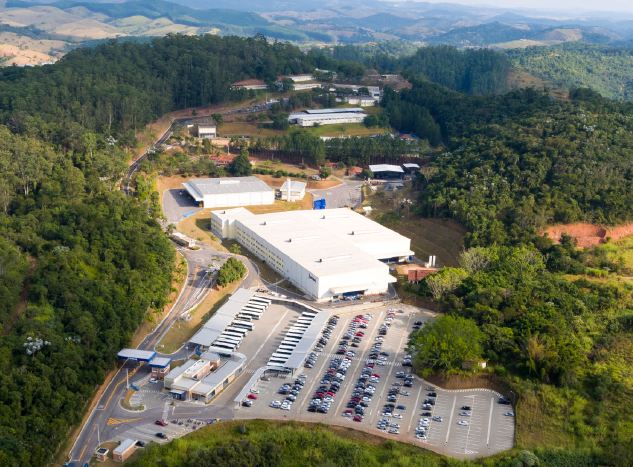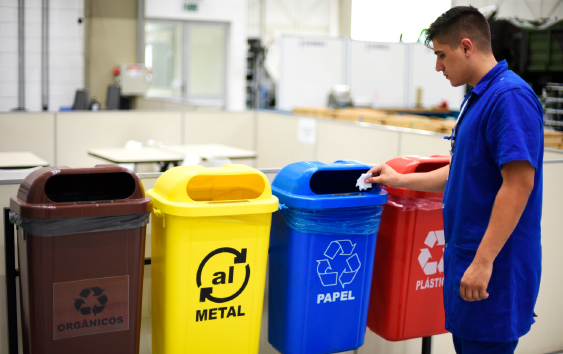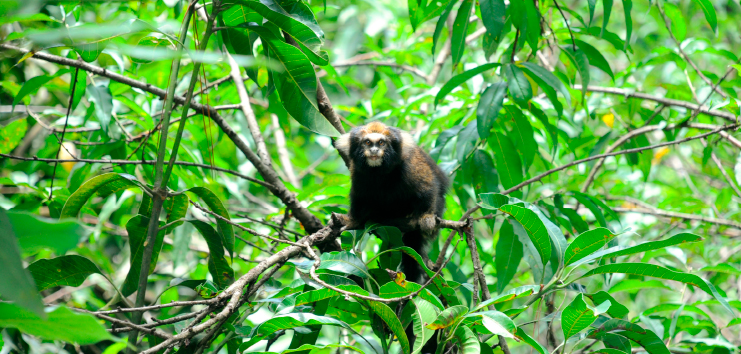Environment 103-2: Water; Energy; Waste; Biodiversity; |
103-3: Water; Energy; Waste; Biodiversity;
The Environmental Management System (EMS) supports action plans and the prevention and control of impacts

The Environmental Management System (EMS) supports action plans and the prevention and control of impacts

In 2018, the company’s environmental practices and procedures were adjusted in line with the basic principles of the Environmental Management System, which supports the consistent planning of actions and the prevention and control of environment impacts, risk management, the continuous improvement of the company’s environmental performance, as well as sustainable productivity by means of the plan, do, check and act cycle.
With the absolute commitment and support of Avibras’ senior management and leaders the company is dedicated to ensuring compliance with all municipal, state and federal regulations applicable to its facilities, in addition to applying practices set forth in the ISO 14001:2015 standard. The company has an Environmental Engineering area which acts as a consultant to other company areas, providing guidance on environmental requirements, as well as auditing the diverse aspects of company processes with a view to reducing and, when possible, eliminating impacts and promoting improvements in these processes.
These initiatives include environmental inspections, guidance on the technical requirements for environmental licensing, the monitoring of new legislation and its application, as well as assessing the major impacts in each area of the company in order to adopt measures to reduce them.
Among the measures to drive employee engagement, the company organises communication and promotes events on biodiversity and environment-related questions on commemorative dates such as: Atlantic Rainforest Day, Environment Week, World Water Day, among others.

Since 2016, the Jacareí unit has reduced energy consumption by 23% through the modernisation and replacement of equipment
Avibras withdraws surface and ground water for consumption at its facilities, because it is not supplied by public utilities. The company generates diverse types of industrial and sanitary effluent, which is treated using physical, chemical and biological processes – the latter in the case of domestic effluent. Since 2017, the company has had a water recirculation system in place in one of the buildings of the Jacareí plant, as well as a rainwater harvesting system to supply the restrooms at the vehicle plant. Other projects are in place or are being studied to recirculate water in production processes. In 2018 water consumption increased by 1.68%, due to the intensification of tests for new projects.
The water recirculation projects are being implanted in the building housing the rocket leaching process in Jacareí, and studies are underway to adopt the same system in the electrophoretic painting (KTL) area.
In accordance with legislation, modernisation and equipment replacement measures were undertaken at the Jacareí manufacturing unit, driving a 1,631 GJ reduction in consumption (avoiding 33 tonnes of CO2e atmospheric emissions). Similarly, fluorescent lamps are gradually being replaced by LED models. This measure also helps to reduce the disposal of fluorescent lamps which are harmful to the environment. Measures were implanted to reduce consumption, such as turning off some administrative and production equipment during lunch hour at the Jacareí unit. With these and other measures, the company ended the year with an energy consumption of 36,200 GJ at all its installations, a 10% reduction compared with the previous year. 302-1 | 302-4
One of the major problems Avibras faces currently is energy blackouts at the Jacareí plant, the result of the fragility of the transmission lines serving the plant. To counter this, the company is conducting a study of its energy matrix, seeking alternative means of generation to meet its requirements and to eliminate power outages.
In principle, the most attractive alternative is solar or photovoltaic energy, one of the main sources of renewable energy, use of which is on the increase in Brazil.
Under the Total Waste Management project, implanted with support from a third-party company, Avibras ensured the correct disposal of 1,073 tonnes of waste in 2018. This corresponds to a total reduction of 27% compared with 2017. The company generated 11.3% less non-hazardous waste, in compliance with the standards established by the environmental authority Companhia Ambiental do Estado de São Paulo (CETESB). This reflects a significant improvement both in the organisation and the maintenance of storage areas for hazardous material. Waste disposal information is reported to the competent authorities, such as CETESB and the national environmental agency Instituto Brasileiro do Meio Ambiente e dos Recursos Naturais Renováveis (Ibama). The collection and transportation of all waste material to recycling centres and hazardous waste disposal units is undertaken by a third-party. 306-2

With two facilities located in the Atlantic Rainforest biome, which is home to a large variety of vegetable and animal species, as well as springs and rivers, Avibras protects, reclaims and conserves the areas surrounding its plants. The protection of legal reserve (ARL) and permanent preservation areas (APP) involves investments in effective processes and procedures that benefit the environment.
The Jacareí plant has an area of 2,700 square kilometres bordering the Santa Branca Reservoir. The Lorena facility occupies an area of 9,722 square kilometres, with lakes that contain a wealth of fish species. Avibras also has an area of 17,922 square kilometres of land in Ubatuba on the north coast of São Paulo state, of which 17,610 square kilometres is listed as a permanent preservation area. 304-1
Any animals found in the manufacturing areas of the plants are collected by the company’s fire brigade and returned to their proper habitat. In 2019, in negotiation with the Jacareí local government, the company is studying a plan to collect, shelter and donate domestic animals.
Located in rural zones, the Jacareí and Lorena plants are registered in Brazil’s Rural Environmental Register (CAR). Their respective legal reserve areas have ecological corridors which ensure greater security for the resident species, enabling them to survive, move around and reproduce in safety. Whenever possible, Avibras promotes the planting of trees at its manufacturing units.
